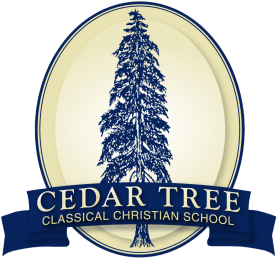“And pray for us, too, that God may open a door for our message, so that we may proclaim the mystery of Christ, for which I am in chains. Pray that I may proclaim it clearly, as I should. Be wise in the way you act toward outsiders; make the most of every opportunity. Let your conversation be always full of grace, seasoned with salt, so that you may know how to answer everyone.” (Colossians 4:3-6)
Paul’s prayer for his effectiveness in proclaiming the gospel message quickly turns into Our communication should be clear, gracious, wise, and timelyexhortations for how the Colossian Christians should themselves communicate. Rather than being vague, sharp-tongued, insubstantial, or inappropriate, our communication should be clear, gracious, wise, and timely. People weigh in with various understandings of what Paul meant when he said that our speech should be “seasoned with salt,” but in classical times it was a common way of referring to witty or memorable expression.
In terms of developing these important skills within Cedar Tree students, we have written communication in mind as well as oral communication. Two aspects of our Portrait of a Graduate highlight this: (1) Speak and write persuasively and articulately, and (2) Defend their faith with grace and confidence. This is the classical Christian way of training confident communicators.
At the finish line, which no doubt seems far away to those with 6- and 7-year-olds, is a high school senior who composes a 20 to 25-page thesis and stands before his or her peers and teachers to summarize it eloquently and articulately respond to questions about it.
How do we get there? Yes, there is a Junior Thesis of somewhat scaled back proportions, but in fact there are twelve years of practice leading up to Senior Thesis Night. After all, genuine confidence comes from lots of practice and feedback and enjoying excellent results.
- Monthly assemblies where each class makes presentations
- Speech contest for all students in 1st through 12th grades (Rhetoric in Nov, Logic in Dec, Grammar in Jan).
- Simple everyday disciplines like standing when speaking to the class, and always speaking and writing with complete sentences.
- Latin offers significant benefits in communication: not only by increasing English vocabulary, but in training the precision of how words fit together to form thoughts.
- Starting in second grade, we use progymnasmata, ancient rhetoric exercises for writing and speaking. Somewhat like soccer drills, they focus on particular skills that will help during the game—or when it’s time to make that speech or write that paper.
- We stair-step our expectations, from writing a sound sentence to writing a sound paragraph, which is the key to written communication. After that, it’s learning how to put them together: 3-paragraph essays in fourth grade, 5-paragraph essays in sixth, 7-paragraph essays in eighth, and so on. When students make speeches, we don’t allow notes, so that we don’t have to wean them later.
- Lots of time for practice. The key here is clear assignments; prompt, individualized feedback; and students working toward goals in their written and oral communication.
Along the way, we seek to emphasize three main aspects of communication, as taught by rhetoricians in ancient times: logos, ethos, and pathos. By Logos (or Truth) we mean that we desire content that is both insightful and logically sound. The Ethos (or Goodness) means stressing that we are serving our audiences and readers, seeking to bless them. And finally the Pathos (or Beauty) is to make sure that we speak and right eloquently, freshly, and beautifully.
This is the classical Christian way of training confident communicators equipped to carry out Paul’s exhortation to be clear, gracious, wise, and timely. We have been blessed to see that happen with our graduates, and it should get all of us excited about seeing that happen with our own children—wherever they might be in that kindergarten through 12th grade process.
-This is an summary of Mr. Bradshaw’s Coffee Talk given in November 2017.






